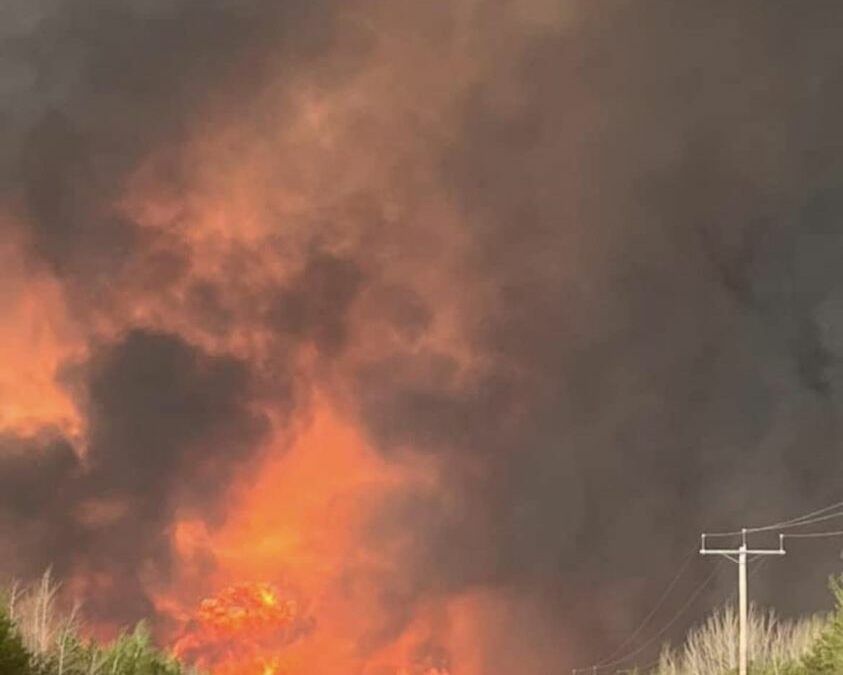A special air quality statement remains in effect for much of Northern Saskatchewan.
Environment Canada said Ile a la Crosse, Buffalo Narrows, Beauval La Ronge, La Loche, Cluff Lake, Cree Lake and Key Lake will likely experience fluctuating wildfire smoke.
“People with lung disease (such as asthma) or heart disease, older adults, children, pregnant people, and people who work outdoors are at higher risk of experiencing health effects caused by wildfire smoke. Speak with your health care provider about developing a management plan for wildfire smoke events and maintaining a supply of necessary medications at home and always carrying these medications with you during wildfire season,” the advisory stated. “Stop or reduce your activity level if breathing becomes uncomfortable or you or someone in your care feel unwell.”
Environment Canada said wildfire smoke can vary considerably from hour to hour. The Saskatchewan Public Safety Agency said there are 33 wildfires burning in the province.
